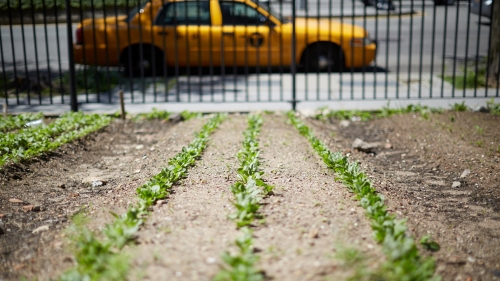Feast and Famine series
Oct 6, 2023 4-6 pm
411 Lafayette 5th Floor room 510
Join professors Fabio Parasecoli (NYU) and Xavier Medina (Universitat Oberta de Catalunya) in a conversation about food heritage. Food heritage had acquired popularity as a tool to stimulate tourism and economic development, as well as a domain of political and diplomatic activities.
What does it take to conduct research on it, both within academic frameworks and in collaboration with private and public institutions? What methodologies can we embrace to produce knowledge that is scholarly sound and also actionable in civil society? Parasecoli and Medina will share their research experiences in Spain, Mexico, and Poland with the audience, reflecting on old and new approaches to the issue.
Prof. F. Xavier Medina
F. Xavier Medina is Professor in Social Anthropology / Anthropology of Food and Nutrition at the Department of Food, Nutrition and Physical Activity, Universitat Oberta de Catalunya (Barcelona, Spain). He is the Director of the UNESCO Chair on Food, Culture and Development; and the current World President of the International Commission on the Anthropology of Food and Nutrition (ICAF). He is also principal investigator of FoodLab, Interdisciplinary research group on food, nutrition, society and health, and vice president of the Catalan Institute of Anthropology (ICA). He was a member of the editorial team for the candidature of the Mediterranean Diet as an Intangible Cultural Heritage (UNESCO, 2010) and a current member of the Government of Catalonia's Catalan Food Council (CCA) and the Academic Council of the Catalan Institute of Cuisine and Gastronomic Culture (ICCCG).
His main research and teaching interests are: food and medical anthropology, food culture and heritage, tourism and socio-economic development linked to food and wine. As author or editor, he has published more than 30 books and more than 200 book chapters and scientific articles in journals, mainly on food issues. Some of his publications include:
Patrimonio gastronómico y turismo cultural en el Mediterráneo [Food Heritage and Cultural Tourism in the Mediterranean.] Ed., with J. Tresserras (2007); Identidades en el plato. El patrimonio alimentario entre América y Europa [Identities on the plate. Food heritage between America and Europe.] Ed., with M. Álvarez (2008); Food, Imaginaries and Cultural Borders. Ed. with R. Ávila e I. de Garine (2009); Alimentación, cocinas e intercambios culinarios. Confrontaciones culturales, identidades, resignificaciones [Food, cuisines and culinary exchanges. Cultural confrontations, identities, resignifications.] Ed. with R. Avila & M. Alvarez (2015); The Mediterranean Diet, from Health to Lifestyle and a Sustainable Future. Ed. with H. Macbeth (2021); Food, Gastronomy, Sustainability, and Social and Cultural Development. Cross-Disciplinary Perspectives. Ed. with D. Conde and L. Mariano (2023).
Prof. Fabio Parasecoli
Fabio Parasecoli is Professor of Food Studies at New York University, Steinhardt and a fellow at the Institute of Philosophy and Sociology of the Polish Academy of Sciences. His research explores the cultural politics of food, particularly in media, design, and heritage. He studied East Asian cultures and political science in Rome, Naples and Beijing, and earned his doctorate in Agricultural Sciences at Hohenheim University, Germany. Recent books include Al Dente: A History of Food in Italy (2014), Feasting Our Eyes: Food, Film, and Cultural Citizenship in the US (2016, co-authored with Laura Lindenfeld), Knowing Where It Comes From: Labeling Traditional Foods to Compete in a Global Market (2017), Food (2019), Global Brooklyn: Designing Food Experiences in World Cities (2021, co-edited with Mateusz Halawa) and Gastronativism: Food, Identity, Politics (2022). His current book project is The Pierogi Problem: Reinventing Polish Food for Cosmopolitan Appetites (with Agata Bachórz and Mateusz Halawa, University of California Press, forthcoming 2024).
He recently conducted research in Spain on design and gastronomic heritage with the support of the Hispanex fund of the Ministry of Culture and Sports of Spain.
Co-sponsored by the King Juan Carlos Foundation of NYU, and the NYU Department of Food Studies.
With the support of Universitat Oberta de Catalunya
Research leading to this talk was made possible thanks to the Ministry of
Culture and Sport of Spain and
the Fulbright
Commission in Spain.

